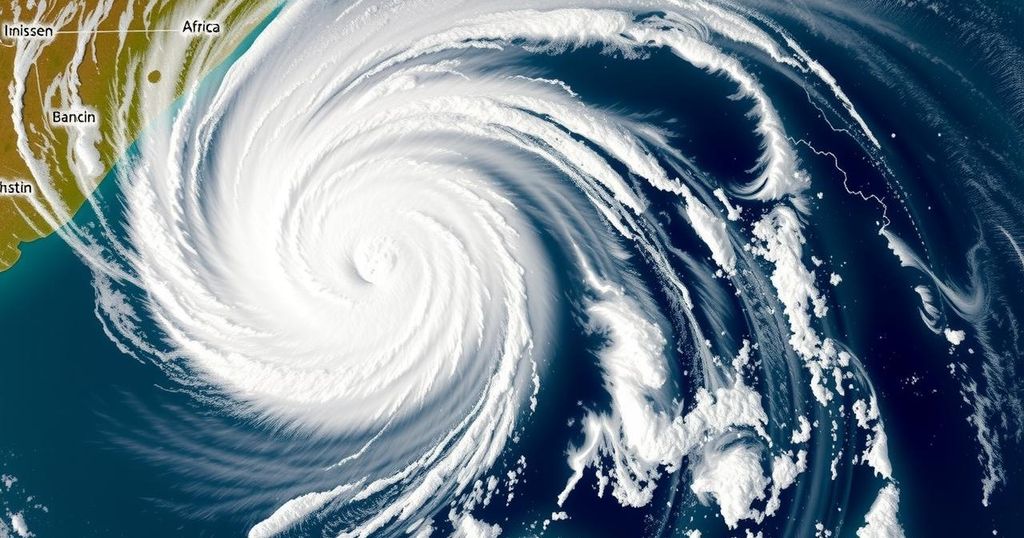Impact of Tropical Cyclone Chido on Southern Africa’s Humanitarian Efforts
Tropical Cyclone Chido is expected to affect approximately 2.7 million people across six Southern African countries. Initiated on 7 December, it has fluctuated between Category 4 and 3 statuses. Immediate preparedness efforts are underway, focusing on advisories to at-risk communities, resource mobilization, and evacuation protocols, particularly in Madagascar and Mozambique, with significant rainfall expected in surrounding regions.
As of 13 December 2024, Tropical Cyclone Chido has impacted close to 2.7 million individuals across six Southern African nations, notably the Comoros, Madagascar, Malawi, Mauritius, Mozambique, and Seychelles. The cyclone, which initially developed as a tropical depression on 7 December, escalated to a Category 4 cyclone before diminishing to Category 3 status by the 13th. The cyclone is projected to follow a west-southwest path that will bring heavy rains, steep waves, and hazardous winds to the northern regions of Madagascar and northern Mozambique, particularly Cabo Delgado, where the most severe impacts are anticipated.
Efforts are currently underway to prepare affected communities through the dissemination of advisories, pre-deployment of humanitarian staff, and the repositioning of emergency supplies. In Madagascar, the National Office for Risk and Catastrophe Management is actively mobilizing resources despite previous road damages from earlier weather events. Regional agencies such as UNICEF, UN OCHA, and various national disaster response teams are coordinating closely to enhance readiness and provide immediate support following the cyclone’s landfall, expected on 15 December in Mozambique.
Meanwhile, Malawi is bracing for heavy rains as well, with advisories issuing urgent calls for vulnerable communities to seek higher grounds. Other nations in the region, including Zimbabwe, Zambia, Angola, Botswana, the Democratic Republic of the Congo, and Eswatini, are also likely to experience heavy rainfall as a result of ongoing weather systems. In preparation for the cyclone’s impending effects, emergency operations are being established, and community awareness campaigns are being rolled out across these countries.
Tropical cyclones are significant meteorological events that can result in dangerous weather conditions such as high winds, heavy rainfall, and flooding, leading to widespread devastation in vulnerable regions, particularly in Southern Africa. The current situation concerns Tropical Cyclone Chido, which presents threats to multiple nations throughout the region, with a strong emphasis on the expected impact on Mozambique as the cyclone approaches landfall. Emergency preparedness and coordinated response strategies are essential in minimizing harm and ensuring the safety of affected populations, which underscore the importance of international cooperation and effective resource mobilization in the face of natural disasters.
In conclusion, Tropical Cyclone Chido poses a substantial risk to close to 2.7 million people across Southern Africa, with profound effects anticipated particularly in Madagascar and Mozambique. Preparedness activities are being prioritized to effectively respond to the arising humanitarian needs and mitigate the anticipated impacts of this severe weather event. The collaborative efforts of national and international agencies are critical in facilitating timely action and supporting affected communities during this challenging period.
Original Source: reliefweb.int




Post Comment